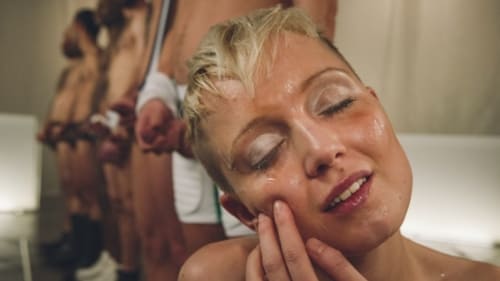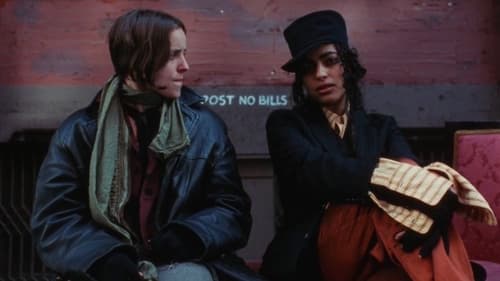Shu Lea Cheang
Nascimento : 1954-01-01, Taiwan
História
Shu Lea Cheang is a Taiwanese multimedia artist who works in the fields of net-based installation, social interface and film production.

Director
Departing from this Madrid Centre’s rebellious past, Wonders Wander takes the wonders out of Malasaña to explore off-the-mainstream nouveau queer generation that includes refugees, migrants, functional diversity, transfeminista, transfeminism, open family, subversive motherhoods, sustainable living, and the rise of auto-defense practices for self-empowerment. Wonders Wander with its gps guided city-walks tracks sites of documented homo-trans-phobic attacks that extend to peripheral Madrid.

Director
"Welcome to the Fisting Club, The first rule of the Fisting Club is : Never talk about the Fisting Club."

Director
It is the year 2060 and AIDS has been eradicated. However, in some, the HIV virus has now mutated into a gene from which a drug can be produced that has become the white powder of the twenty-first century. With a virtually supported scanning system, secret police are trying to identify anyone who carries this gene. Filmed in Berlin, Taiwan-born multimedia artist and filmmaker Shu Lea Cheang’s science fiction dystopia revolves around a struggle to gain control over the production and exploitation of bodily fluids. Her film is like an orgiastic opera; a breathless round of bodies, secretions, performances and sexual acts often performed in the service of an overriding economy. An unusual, largely experimental and deliberately parapornographic drama in which the borders between the sexes as well as homo-, hetero-, bi-, trans- or intersexual are constantly blurred.

Director
Paris, like the other metropolitan cities in Europe, was flourishing because of new crossing urbanities, while tension was born between the conservative and the new types of Europeans. By the year of 2030, the new races of Europeans have a chance to return to their hometown where the standard of living began to improve. In anticipating the exodus of reverse migration, LOVEME2030 wishes to defer the unfinished love stories until year 2030. Love me, not now, not here. LOVE ME when I am gone.

Writer
Reiko é uma robô sexual programado para acumular experiência sexual. Ela passa por sete tipos de corpo para experimentar uma várias relações sexuais. Ela retorna para a corporação para fazer o download da informação acumulada dentro de si e escapar de seu controle.

Director
Reiko é uma robô sexual programado para acumular experiência sexual. Ela passa por sete tipos de corpo para experimentar uma várias relações sexuais. Ela retorna para a corporação para fazer o download da informação acumulada dentro de si e escapar de seu controle.

Director
Shareen and Claire, a lesbian couple living on Staten Island, find themselves ensnared in a vast conspiracy involving a ghost ship of nuclear refuse, ominous television commercials, and deadly cat food.

Director
A film made for multimedia artist Shu Lea Cheang’s first art installation features a series of bowlers staring into the lens of the camera, preparing to make a move. Commissioned by the Walker Art Center.

Director
How did they make it? The unbearable innocent fingers and kisses. Colors on the screens, your, hers, mine... Cheang has taken her camera to the streets for a candid glimpse of lesbian public sexuality. The film challenges to the question "What do lesbians do?"

Director
She loves her, and she loves her too. She is Japanese and she is Australian. The awkward fitting of bodies into a small space is just one of the allegorical scenarios dramatized in a pressing appeal for lesbian rights.

Director
All forms of human sport become sites for sexual play and celebratory eroticism. “The tape’s images are quick, suggestive, and sexy: fingers moving into bowling balls, shoe-smelling and toe-sucking, a dog wearing chain jewelry, fish being wrapped at the market, young naked couples having sex.... Edited like a music video, the image track is a constant flow of fetishes that lure us into the promiscuous pace of girls who keep lists of their sexual encounters.” —Chris Straayer

Director
A euphoric lesbian sex video features a group of women in a frenzy of erotic scenes with poetry, slowly dripping water, fancy goldfish, and an ecstatic score by Sheila Chandra. Experimenting with pro-sex feminist media practices and pornography, Sex Fish was made as a collaboration known as E.T. Baby Mania.

Producer
This program illustrates how video activists have developed sophisticated use of small format video, with poetic and powerful imagery, complex mixes of sounds and scores and an effective editing style that belies the urgency under which it is being made. The video movement in Taiwan has made successful use of home cassette distribution, via both mail and street vendors. The Green Team collective has pioneered in this effort with over 100 titles in distribution, documenting the struggles of farmers, students, workers and environmentalists.

Director
An upbeat, ironic look at America's multicultural society, Color Schemes uses the metaphor of "color wash" to tackle conceptions of racial assimilation. Challenging stereotypes, twelve writer/performers collaborate on four performance sequences—soak, wash, rinse and extract. Spinning through this tumble- jumble of America's washload, the performers scheme to claim racial images that remain color vivid. Color Schemes was also exhibited in its installation form (with a self-service washing machine) at the Whitney Museum in 1990.

Director
Three commentators sit in a news studio in front of a TV discussing the Tiananmen Square massacre as reported by local and foreign media. This film aims to examine the politics of image and the image of politics through commenting on the topics of democracy, media control, consumption and commercialism.

Director
The artwork on trial is Richard Serra's public sculpture, Tilted Arc, commissioned and installed by the U.S. government in 1981. Four years later, a public hearing was held to consider the removal of the sculpture from its site in Federal Plaza in New York City. In documenting the climatic General Services Administration hearing, The Trial Of Tilted Arc is a thought-provoking indictment of the state of the arts. At issue is the validity of a contract between an artist and the government, the freedom of artistic expression, and the "public's" involvement in designing the visual environment. The dialogue/debate between the art community and the bureaucrats has described this site-specific art work in terms ranging from "masterpiece" to "mouse trap."















